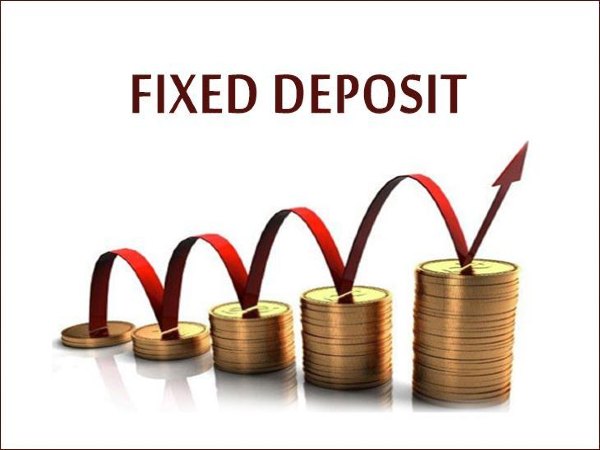4 Best Fixed Deposits To Invest For Your Parents
[ad_1]
Read More/Less
SBI ‘WECARE’ SENIOR CITIZENS’ TERM DEPOSIT SCHEME
According to the official website of the country’s largest lender State Bank of India (SBI) “SBI takes pride in its association with Senior Citizens and introduces new Deposit Scheme “SBI WECARE’ protecting their income by offering additional interest on Term Deposits.” This is a domestic term deposit scheme for senior citizens which comes with a deposit tenure of 5 years to 10 years. Regarding the interest rates, SBI has also clearly mentioned on its website that senior citizens will get “Additional premium of 30 bps (over and above existing premium of 50 bps) over card rate for Public i.e. 80 bps over card rate for Public.” Senior citizens will earn 6.20 per cent interest on their fixed deposit under this scheme, which was recently extended by the lender until September 2021. According to SBI, these rates are effective from 8 January 2021.
| Tenure | Senior Citizen FD Rates In % |
|---|---|
| 7 days to 45 days | 3.4 |
| 46 days to 179 days | 4.4 |
| 180 days to 210 days | 4.9 |
| 211 days to less than 1 year | 4.9 |
| 1 year to less than 2 year | 5.5 |
| 2 years to less than 3 years | 5.6 |
| 3 years to less than 5 years | 5.8 |
| 5 years and up to 10 years | 6.2 |

HDFC Senior Citizen Care Scheme
Senior Citizens who prefer to place a Fixed Deposit less than 5 crores for a term of 5 years one day to 10 years during the special deposit offer beginning from 18th May’20 to 30th Sep’21 would receive an additional premium of 0.25 per cent over and above the current premium of 0.50 per cent. During the aforementioned time, this special offer will be available to fresh fixed deposits as well as renewals by senior citizens, according to the HDFC Bank. Under this special FD scheme, senior citizens would get an interest rate of 6.25% which is in force from 21 May 2021.
| Tenure | Senior Citizen FD Rates |
|---|---|
| 7 – 14 days | 3.00% |
| 15 – 29 days | 3.00% |
| 30 – 45 days | 3.50% |
| 46 – 60 days | 3.50% |
| 61 – 90 days | 3.50% |
| 91 days – 6 months | 4.00% |
| 6 months 1 day – 9 months | 4.90% |
| 9 months 1 day | 4.90% |
| 1 year | 5.40% |
| 1 year 1 day – 2 years | 5.40% |
| 2 years 1 day – 3 years | 5.65% |
| 3 year 1 day- 5 years | 5.80% |
| 5 years 1 day – 10 years | 6.25% |

Bank of Baroda Special FD Scheme
Under the special fixed deposit scheme of Bank of Baroda, senior citizens will get 100 basis points higher on their deposits placed for a period of 5 years and up to 10 years will yield a 6.25 per cent interest rate under this scheme. BoB has also stated on its official website that senior citizens would get “1.00% for “Above 5 years to up to 10 years” tenor and valid till 30.09.2021.” These rates are effective from 16.11.2020.
| Tenure | Senior Citizen FD Rates In % |
|---|---|
| 7 days to 14 days | 3.3 |
| 15 days to 45 days | 3.3 |
| 46 days to 90 days | 4.2 |
| 91 days to 180 days | 4.2 |
| 181 days to 270 days | 4.8 |
| 271 days & above and less than 1 year | 4.9 |
| 1 year | 5.4 |
| Above 1 year to 400 days | 5.5 |
| Above 400 days and up to 2 Years | 5.5 |
| Above 2 Years and up to 3 Years | 5.6 |
| Above 3 Years and up to 5 Years | 5.75 |
| Above 5 Years and up to 10 Years | 6.25 |

ICICI Bank Golden Years Fixed Deposit
On five years and one day up to ten years of deposit, resident senior people will earn an additional 0.30 per cent interest rate on their fixed deposits, over and above the existing additional rate of 0.50 per cent per year. According to the ICICI Bank, this scheme is valid from May 20, 2020 until October 7, 2021.
| Tenure | Senior Citizen FD Rates In % |
|---|---|
| 7 days to 14 days | 3.00% |
| 15 days to 29 days | 3.00% |
| 30 days to 45 days | 3.50% |
| 46 days to 60 days | 3.50% |
| 61 days to 90 days | 3.50% |
| 91 days to 120 days | 4.00% |
| 121 days to 150 days | 4.00% |
| 151 days to 184 days | 4.00% |
| 185 days to 210 days | 4.90% |
| 211 days to 270 days | 4.90% |
| 271 days to 289 days | 4.90% |
| 290 days to less than 1 year | 4.90% |
| 1 year to 389 days | 5.40% |
| 390 days to | 5.40% |
| 18 months days to 2 years | 5.50% |
| 2 years 1 day to 3 years | 5.65% |
| 3 years 1 day to 5 years | 5.85% |
| 5 years 1 day to 10 years | 6.30% |
| 5 Years (80C FD) | 5.85% |

Special Fixed Deposit Scheme Interest Rates
Below are the latest interest rates of special fixed deposit schemes for senior citizens.
| Special FD Schemes | ROI in % | Valid till |
|---|---|---|
| ICICI Bank Golden Years Fixed Deposit | 6.30% | October 7, 2021 |
| HDFC Senior Citizen Care Scheme | 6.25% | September 30, 2021 |
| Bank of Baroda Special FD Scheme | 6.25% | September 30, 2021 |
| SBI WECARE Deposit Scheme | 6.20% | September 30, 2021 |
[ad_2]


























